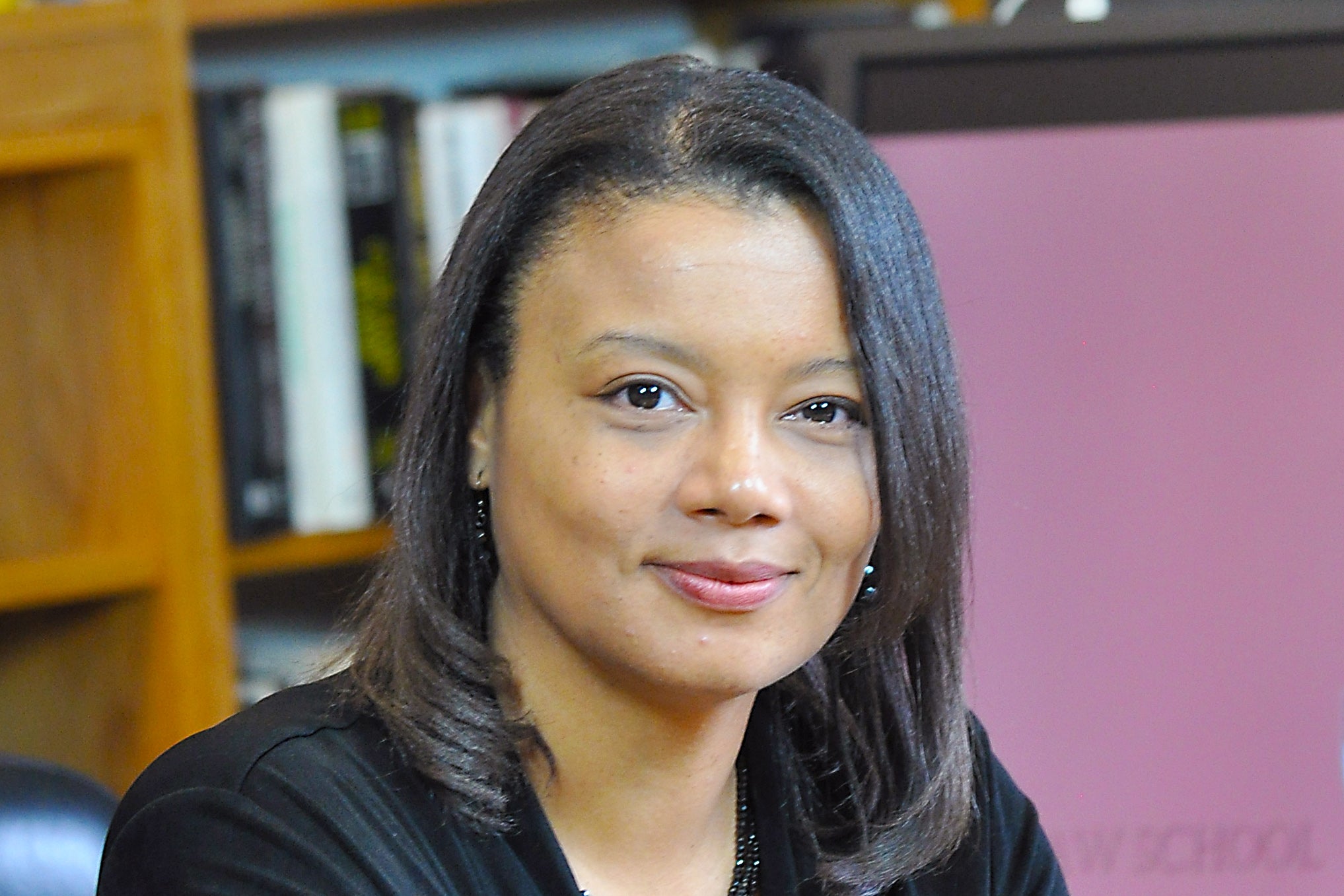Harvard Law School Dean Martha Minow has appointed Professor Tomiko Brown-Nagin to be the faculty director of the Charles Hamilton Houston Institute for Race and Justice (CHHI) at HLS.
Brown-Nagin, an award-winning legal historian and an expert in constitutional law and education law and policy, is the Daniel P.S. Paul Professor of Constitutional Law at Harvard Law School and Professor of History at Harvard’s Faculty of Arts and Sciences. She succeeds Charles Ogletree as CHHI’s faculty director. Ogletree launched CHHI in September 2005 to combine scholarship, law, policy and practice in efforts to advance community justice.
“Tomiko Brown-Nagin’s superb scholarship has illuminated the roles of individuals, social movements, and political and legal institutions in historical struggles over civil rights, “ said Minow. “As both a historian and expert in constitutional law, she is ideally suited to take up the work Charles Ogletree began and led so superbly at the Institute within and beyond Harvard Law School. I am so delighted and grateful that Tomiko will turn her expertise and sense of urgency to tackling persistent issues of injustice in American society, including injustices based on gender as well as race. Her talents and clarity will help this and other communities undertake sustained and crucial work, addressing obstacles to opportunity in education and other spheres.”
Brown-Nagin joined the HLS faculty in 2012. A 1997 graduate of Yale Law School, she also holds a Ph.D. in history from Duke University, and she is one of her generation’s leading historians of law and society. She won the Bancroft Prize in U.S. History for 2011 book Courage to Dissent: Atlanta and the Long History of the Civil Rights Movement (Oxford). Brown-Nagin currently is completing a book, forthcoming from Pantheon Press, about the life and times of the Honorable Constance Baker Motley, the civil rights lawyer, politician, and judge. In addition, Brown-Nagin has published articles and book chapters on the Supreme Court’s equal protection jurisprudence and on education reform in a variety of publications, including the Yale Law Journal, the Harvard Law Review and the Columbia Law Review and the popular press. At HLS, she is co-director of the program on law and history and a faculty adviser to Supero, the organization that supports students from disadvantaged backgrounds. Brown-Nagin is a member of the American Law Institute and the 2016-17 Joy Foundation Fellow at the Radcliffe Institute for Advanced Study.
Said Ogletree: “Among the many bright spots of my Harvard Law School career, the Charles Hamilton Houston Institute for Race and Justice shines as brightly as any other. It stands as a tribute to one of our greatest HLS alumni who paved the way for generations of civil rights attorneys, including me. The Houston Institute has become an acknowledged voice on questions of race and justice and through its commitment to the community, a worthy continuation of the Saturday School tradition I began many years ago. I am thrilled that Professor Tomiko Brown-Nagin will continue this work along with the current staff and look forward to the accomplishments of the institute for many years to come.”
Theodore Wells ’76, a partner and co-chair of the litigation department at Paul Weiss, said, “As a longtime financial supporter of CHHI, I am overjoyed that Professor Brown-Nagin will be the new faculty director of CHHI. I have known Tomiko for almost 20 years, since she was a star associate at Paul, Weiss, and I have had the privilege to be one of her mentors. Given Tomiko’s intellect, poise, and commitment to equal opportunity, I am sure CHHI will continue to thrive and grow under her leadership.”
Brown-Nagin looks forward to continuing CHHI’s innovative programming on fair punishment and its community outreach, while pursuing new, education-related initiatives.
“I am honored to lead CHHI in the coming years. The organization’s mission of pursuing social justice and inclusion for all is more vital now than ever. Through CHHI, I hope to advance one longstanding aspect of my scholarly agenda — highlighting and ameliorating the opportunity gap that limits the educational and professional prospects of women and girls and talented students not born to wealth and social status. The opportunity gap not only diminishes the life prospects of individuals, but also limits the productivity of American educational, legal, political and economic institutions.”
